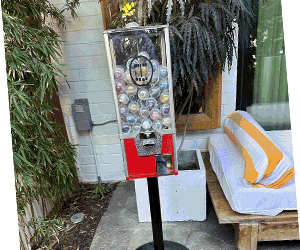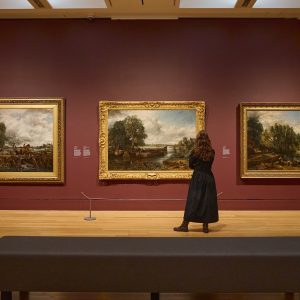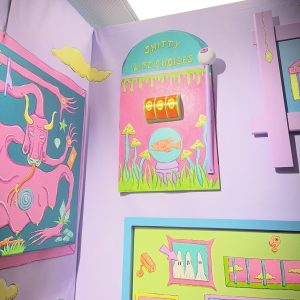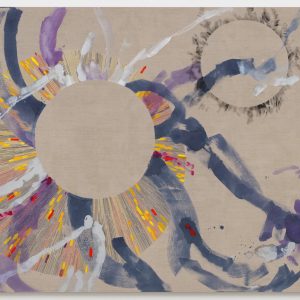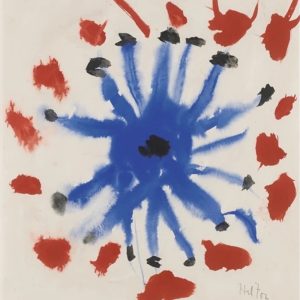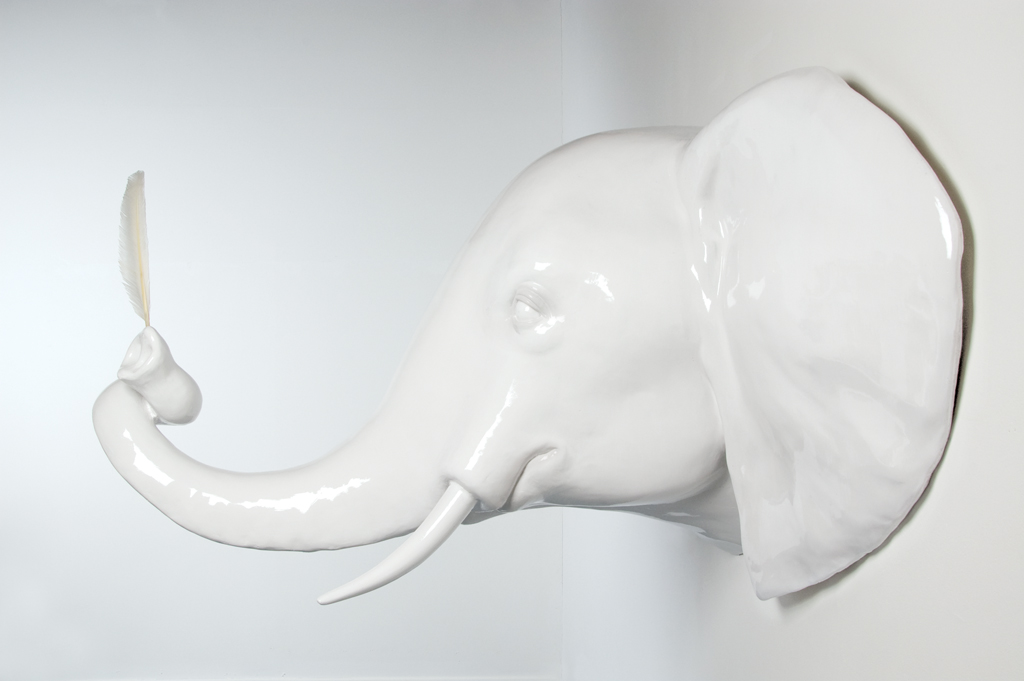
1 When did you start to make art?
As a kid I was very much into inventing and I loved drawing and making stuff. Things like creating a series of cartoon creatures and the fantasy world they inhabited, making a ‘play world’ for my pet mice – complete with maze, designing my own clothes, redecorating my bedroom and making custom furniture. None of this was really ‘art’ but I’ve always had creative projects on the go, so I guess that’s where it all started.
2 How did you evolve into a professional artist?
What’s a professional artist? If you mean an artist who is able to make a living out of their art then I’m not a professional artist. But I have managed to get myself into a position where I can dedicate a lot of time to my art and still be able to pay the rent.
3 What drove you to make art as a professional vocation?
There was a period of time a few years after I graduated where, because of financial difficulties, I was not able to make art for quite a long while. I found myself in a full-time job that a lot of people would have thought interesting but I felt that my spirit was dying. I could have chosen a career and done quite well out of it, but for me it wasn’t really an option, I would much rather be poor but free to make art, and eventually I managed to get myself out of it.
4 Explain your inspiration?
I’m interested in human nature, our motivations and how our minds work. I work with symbols and stories and find inspiration in myths, fairytales and popular culture.
5 In what way does your inspiration transform into ideas?
The process is very intuitive and sparks off from something I’m interested in at the time, or I’ve read / seen / heard or experienced myself. Several sparks might join up in a bigger idea; often it’s a combination of notions over time. One idea might separate into several sub-ideas. I see my creative brain as a big computer, I feed it all sorts of things and out pop ideas at the other end and most of the time I’m not really aware of how they come about.
6 From Ideas to production of art – how? And why?
Quite often in the past ideas would come loud and clear and I would know exactly what to do to bring them about. It would almost just be the case of making the work that was in my head. Increasingly now however I find that the ideas that come are less tangible, they feel more like flames that need to be held and fed for a while so that they grow bigger and stronger. That’s where research, playing and experimenting come in. It’s a different way of working and it allows for more mistakes – which makes the process more interesting.
7 Could your ideas be portrayed in any other medium? If so which?
I have mostly made sculptures/installations but sometimes worked in stop-motion animation, video and photography. Sometimes I think it would be great to be a painter (not least for logistical reasons like transport, storage, installation time and costs!) but I just don’t think in 2D.
8 Which artists would you most like to blatantly rip off?
I wouldn’t rip anyone off, what would be the point of that? If I’m not going to make my own work I might as well get a 9-5 job.
9 Why is your art made?
I guess because I feel I’ve got things to say and I’m hoping that might be of interest to someone.
10 What does being an artist mean to you?
To me it means taking life in – or some experiences of life – rearticulating them and sending them back into the world again.
11 Are you happy with your reasons for making art? ie, are there any trade offs that make life hard?
I could do with more money, not just for living but also to make more art.
12 When does your art become successful?
When I get the same feeling looking at the finished piece that I got when I first got the idea(s).
13 What is art?
I’d answer in the same way I’ve answered question 10: art is a different articulation of life that is put in front of us so we can look at it properly and maybe spend some time reflecting. I believe art is life-enhancing.
14 How do you start the process of making work?
Depending on the idea I might start researching and experimenting with materials, make models, do visual research (I take lots of photographs) and drawings, and some more information-based background research. I always keep a notebook on me for ideas and sketches.
15 Who prices your work? And how is the price decided upon?
I price the work myself and the price takes into account the cost of materials and labour and where I am my artistic career. I try to gage prices from what other artists are charging.
16 What is your next move, project, show etc?
I’ve got an exhibition at the NO:ID gallery in London starting on the 26 June (Private view 25 June, click here for more info), and I’m going back to Art College in September for some Postgraduate studying.
17 What are the pros and cons of the art market?
I have no issues with the idea of market and selling work, and to be fair we are lucky in the UK in that art is somewhat recognised as having an important part to play in society. But one of the issues for artists is that there is relatively little demand for contemporary art in general, but comparatively a lot of supply. And the demand that exists tends to be for a small number of established artists. So it is an unequal, elitist world, but that is just the way it is and I’m not sure it would work any other way.
18 Which pieces would you like to be remembered for?
I always tend to prefer the work that I’ve just made so at the moment one of my favourite pieces is ‘You only have to believe’, the elephant piece.
19 Any routine in making your artwork? If so what?
No, not really. I tend to work in intense and sporadic bursts, with a lot of thinking in between.
20 What has been the biggest break in your career?
Well, I’m still at the beginning of my career so no big break has happened as yet.
21 Who has been the biggest influence on you?
No one in particular, I learn from many different sources.
22 How many artworks have you given away and to whom?
Some photographs to friends for birthdays or in exchange for services, but not many. My work is mostly large scale so most people would not have the space for it.
Alexandra Valy lives and works in London.
Check out her work here.
Sign up to receive news about new work and exhibitions here.
